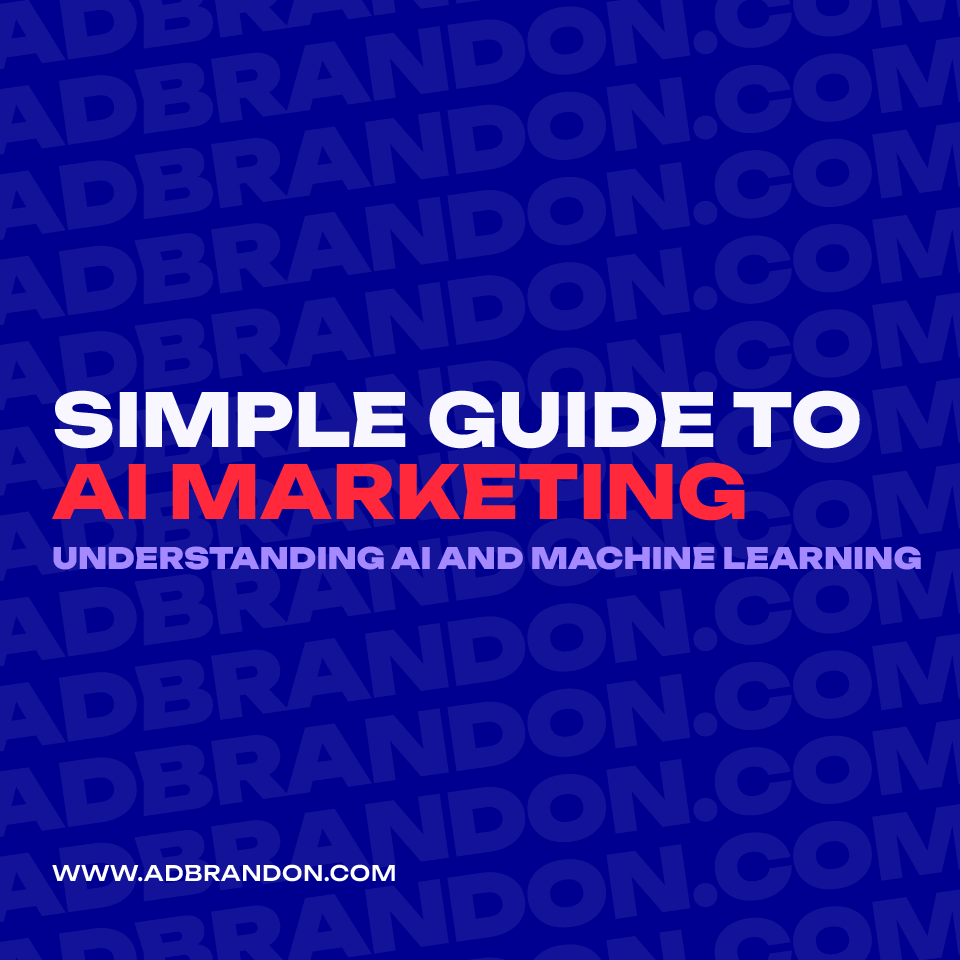Simple Guide to AI Marketing
In today’s fast-paced digital landscape, businesses are constantly seeking innovative ways to stay ahead of the competition. One such innovation that has gained tremendous popularity in recent years is AI marketing. This simple guide aims to demystify the world of AI marketing and provide you with a comprehensive understanding of how artificial intelligence can revolutionize your marketing efforts.
Table of Contents
1. Introduction to AI Marketing
Increase your productivity by 500%
AI marketing, also known as artificial intelligence marketing, is the use of advanced technologies such as machine learning and data analytics to streamline marketing strategies. It involves harnessing the power of AI algorithms to make data-driven decisions, personalize customer experiences, and optimize marketing campaigns.
2. Understanding AI and Machine Learning
Before diving deeper into AI marketing, it’s essential to grasp the basics of AI and machine learning. AI refers to the simulation of human intelligence in machines, enabling them to perform tasks that typically require human intelligence, like learning from data and making predictions. Machine learning is a subset of AI that focuses on algorithms that improve their performance over time.
3. Benefits of AI Marketing
3.1 AI-Driven Customer Insights
AI tools can analyze vast amounts of customer data to provide insights into consumer behavior, preferences, and trends. This information is invaluable for tailoring your marketing strategies.
3.2 Personalized Marketing Campaigns
By leveraging AI, you can create highly personalized marketing campaigns that resonate with individual customers. Personalization increases engagement and conversion rates.
3.3 Enhanced Customer Engagement
AI-powered chatbots and virtual assistants can enhance customer engagement by providing immediate responses and assistance, improving the overall customer experience.
3.4 Optimizing Marketing Budgets
AI algorithms can allocate your marketing budget more efficiently by identifying high-performing channels and campaigns, ensuring that your resources are used effectively.
4. AI-Driven Customer Insights
To harness the power of AI marketing, start by collecting and analyzing customer data. This includes demographic information, browsing behavior, purchase history, and social media interactions. AI tools can identify patterns and trends in this data, helping you understand your audience better.
5. Personalized Marketing Campaigns
Creating personalized marketing campaigns involves tailoring your content and offers to match individual customer preferences. AI algorithms can segment your audience and deliver customized messages, increasing the chances of conversion.
6. Enhanced Customer Engagement
Implement AI-powered chatbots on your website or messaging apps to provide instant responses to customer inquiries. This 24/7 availability enhances customer engagement and satisfaction.
7. Optimizing Marketing Budgets
AI can analyze the performance of your marketing campaigns in real-time. By reallocating resources to the most effective channels and strategies, you can optimize your marketing budget and maximize ROI.
8. Implementing AI Marketing
To implement AI marketing successfully, you need to choose the right AI tools, collect and analyze data, create tailored content, and leverage AI-generated content.
9. Selecting the Right AI Tools
When selecting AI tools for your marketing efforts, consider factors such as scalability, compatibility with your existing systems, and the specific needs of your business.
10. Data Collection and Analysis
Collecting and analyzing data is the foundation of AI marketing. Ensure that you have robust data collection processes in place and use AI to derive meaningful insights from the data.
11. Creating Tailored Content
Craft content that speaks directly to your audience’s needs and interests. Use AI insights to inform your content strategy and messaging.
12. AI-Generated Content
AI can assist in generating content, such as product descriptions or blog articles. However, maintain a balance between AI-generated content and human creativity to retain authenticity.
13. Measuring AI Marketing Success
Track key performance indicators (KPIs) to measure the success of your AI marketing initiatives. This may include metrics like conversion rates, customer satisfaction scores, and revenue growth.
14. Challenges and Ethical Considerations
While AI marketing offers numerous benefits, it also raises ethical concerns. Be transparent about your use of AI, respect customer privacy, and ensure that your AI algorithms are unbiased.
15. Conclusion
In conclusion, AI marketing is a game-changer for businesses seeking to enhance their marketing strategies. By harnessing the power of AI, you can gain deeper insights into your customers, create personalized campaigns, engage with your audience more effectively, and optimize your marketing budget. However, it’s crucial to implement AI responsibly and ethically to build trust with your customers.
FAQ
Q1: Is AI marketing suitable for small businesses?
A1: AI marketing can benefit businesses of all sizes. Small businesses can use AI to compete effectively and reach their target audience.
Q2: What types of data are essential for AI marketing?
A2: Customer data, including demographics, purchase history, and online behavior, is crucial for AI marketing.
Q3: Are there AI tools specifically designed for e-commerce businesses?
A3: Yes, many AI tools cater to e-commerce businesses, helping them improve product recommendations, customer support, and marketing strategies.
Q4: How can I ensure the ethical use of AI in marketing?
A4: To ensure ethical use, be transparent with customers about your AI practices, prioritize data security, and regularly assess AI algorithms for biases.
Q5: What are some common challenges when implementing AI marketing?
A5: Challenges include data quality, integration with existing systems, and the need for ongoing training and updates to AI algorithms.
Let’s Connect!
Start your creative journey today!
An Art Director’s Blog
Explore more of my articles.




